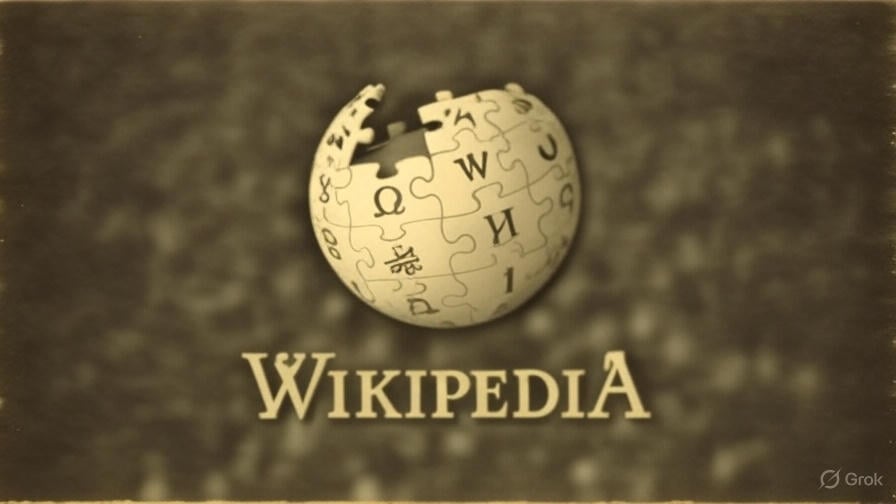Grokipedia: Elon Musk’s AI-Powered Wikipedia Alternative
Introduction
Elon Musk made headlines at the All-In Summit 2025, revealing his ambitious plan to launch Grokipedia, an AI-driven, open-source alternative to Wikipedia. The announcement, shared widely on X by @cb_doge, has generated intense discussion among tech enthusiasts, researchers, and AI critics alike. Musk aims to tackle what he calls “bias and inaccuracies” in Wikipedia entries, offering a system powered by xAI’s Grok to process, verify, and correct vast amounts of human knowledge.
ELON MUSK: Grok uses massive inference compute to scan the corpus of human knowledge - books, PDFs, websites, detecting falsehoods, fixing half-truths, and adding missing context.
— DogeDesigner (@cb_doge) October 1, 2025
It’s like rewriting Wikipedia, but accurate.
pic.twitter.com/9ksodIlnMk
What is Grokipedia and How Does It Work?
Grokipedia is designed to synthesize verified information from books, PDFs, websites, and other sources using massive computational power. According to Musk, the platform:
- Detects inaccuracies, partial truths, and omitted details.
- Uses AI reasoning to rewrite content with improved accuracy.
- Is fully open-source and free for public use.
- Integrates with xAI tools to enhance research and AI-driven knowledge generation.
Musk likens the process to “rewriting Wikipedia, but accurate,” addressing long-standing concerns over perceived ideological bias and selective editing practices.
Why Musk Thinks Wikipedia Needs Grokipedia
Musk has criticized Wikipedia for being:
- Ideologically skewed: Predominantly influenced by a small group of activists or editors.
- Biased source for AI: Influences AI training data with potential inaccuracies.
- Limited in truth-seeking: Often omits context or contains half-truths.
By leveraging Grok, Grokipedia aims to provide bias-free, censorship-resistant knowledge that’s constantly verified and updated.
Technical Approach of Grokipedia
The AI platform operates with heavy inference compute, allowing it to:
- Cross-reference multiple sources simultaneously.
- Detect errors, misinformation, or omissions in real-time.
- Dynamically rewrite content for accuracy and completeness.
This process could transform how encyclopedic knowledge is accessed, with a potential to rival Wikipedia if it gains traction.
Public Reaction on X
Responses to the announcement were mixed but mostly positive:
| Sentiment | Example | Prevalence |
|---|---|---|
| Positive | “Elon Musk is building Grokipedia to provide a neutral and accurate alternative… leveraging xAI's Grok chatbot.” (@fahadi313) | 70–80% |
| Skeptical | “Grok is ridiculously bad, extremely inaccurate and very sloppy.” (@michaelpresky) | 15–20% |
| Neutral | “Elon Musk: Grok leverages massive compute… Like rewriting Wikipedia, but accurate.” (@tan4u_) | 5–10% |
While supporters hail it as a revolutionary tool against biased knowledge, critics question whether AI can truly eliminate bias without introducing its own.
Potential Impact of Grokipedia
If successful, Grokipedia could:
- Offer a reliable knowledge alternative for students, researchers, and AI systems.
- Challenge Wikipedia’s dominance in global knowledge dissemination.
- Serve as a bias-correcting layer for AI training data.
- Spark broader debates on AI governance, neutrality, and ethics.
FAQs
Q1: When will Grokipedia be available?
A1: Musk has not announced an exact launch date, but it will be free and open-source, integrated with xAI tools.
Q2: Will Grokipedia replace Wikipedia?
A2: While it could serve as a strong alternative, widespread adoption will depend on reliability, neutrality, and community trust.
Q3: How does Grokipedia handle bias?
A3: AI-powered Grok cross-references sources and corrects inaccuracies, but critics caution that AI itself may reflect inherent biases.
Q4: Is Grokipedia for everyone?
A4: Yes. The platform is designed for global access without usage restrictions.
Q5: Can anyone contribute?
A5: Community contributions are expected alongside AI verification to maintain accuracy.
Conclusion
Elon Musk’s Grokipedia represents a bold vision: combining AI computational power with open-source principles to challenge entrenched knowledge systems like Wikipedia. While it promises accuracy, bias correction, and accessibility, its success will depend on whether AI can reliably interpret truth without human prejudice. Whether Grokipedia will reshape the digital encyclopedia landscape or become another echo chamber remains to be seen.
From a neutral perspective, Grokipedia’s initiative is intellectually stimulating and likely to influence AI research, education, and knowledge distribution—but readers should critically evaluate both the platform and its outputs as it evolves.


0 comments